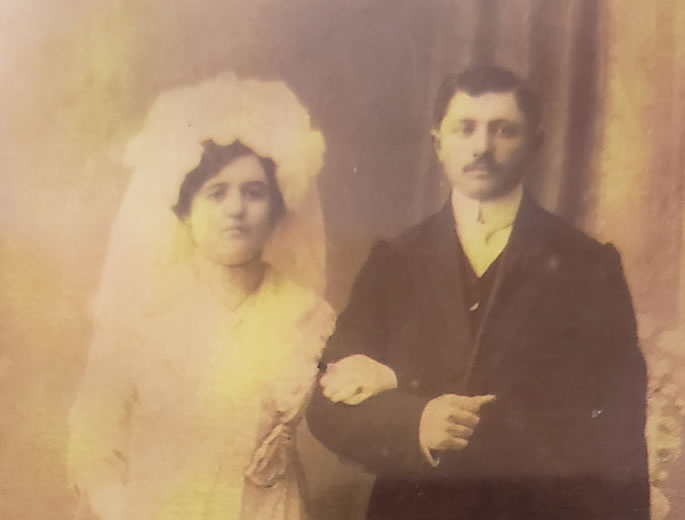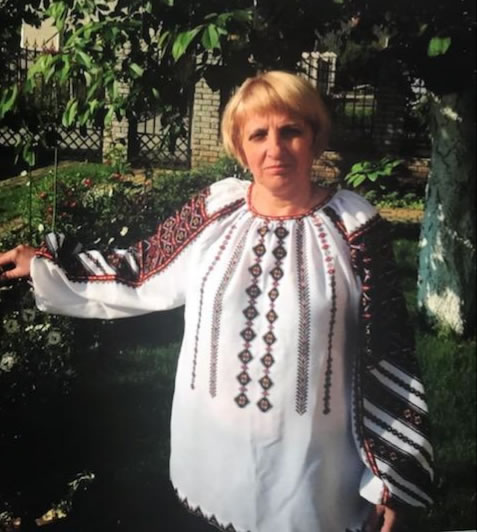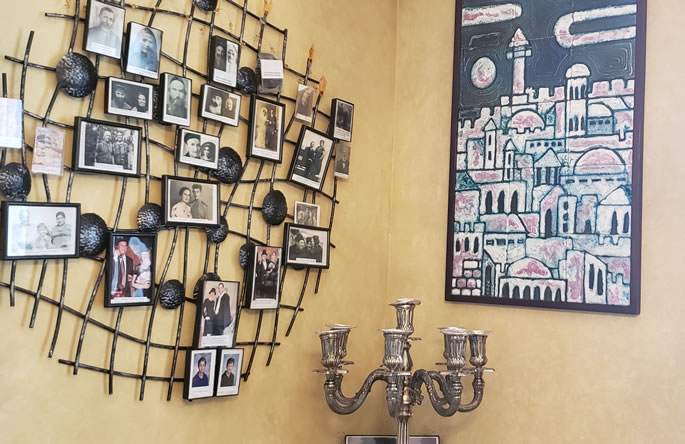After my family’s immigration to the United States in 1989, I began to familiarize myself with my Jewish heritage and Torah values. Born in the former Soviet Union, I was deprived of any connection to Judaism, and as I was becoming more familiar with the traditions of my people, I was eager to share the knowledge with family and friends.
The most enthusiastic recipient of my newly acquired information was my grandmother, Zelda. Born in 1924, just seven years after the Russian Communist Revolution of 1917, my grandmother remembered some strange customs of her own grandmother, such as looking for crumbs around the house during springtime. Nearly 65 years had passed since her childhood, but she understood that her grandmother was secretly cleaning in preparation for the holiday of Passover. Zelda remembered her father putting on black “boxes” in a corner of the room—just to see those same “boxes” (tefillin) when my sons, her great-grandchildren, put them on for the first time at their bar mitzvahs. Perhaps this is what the phrase “coming full circle” means.
Zelda died on May 6, 2020.
During the last seven years of my grandmother’s life, I visited her on Friday afternoons to light Shabbat candles and make a blessing over the wine and challah. I arrived in the afternoon because I needed to be home with my own family before the actual onset of Shabbat. These were joyous visits for both of us. Despite the fact that my grandmother was succumbing to dementia, she somehow learned the prayers by heart. It’s hard to believe that only a few months ago we were clapping and singing our traditional jingle “one more week of life … thank you, thank you, thank you.”
My grandmother believed in G‑d with absolute certainty, despite the fact that she spent 65 years of her life in an atheist country. Zelda lost her mother at the age of 3, lived through poverty and starvation, was widowed at 34 and cared for her ill daughter. She spent her life healing people as a doctor, saving countless lives. Yet these challenges didn’t diminish her joy and faith. Every week, Zelda told me that she loves G‑d and knows that He loves each of us!
I frequently also think about my paternal great-grandparents, Nachum and Chaya Rabovetsky. Together with their 11-year-old son, they fled Vinitsya, a city in Ukraine, in a futile attempt to escape the Holocaust. Nachum was shot when they were caught on the road, while his wife and son were able to escape. Eventually, Chaya, my great-grandmother, died in a ghetto. Both she and my great-grandfather have no graves.

In her later years, my grandmother Zelda had a home health aide, Svetlana, who immigrated to the United States from Ternopil, a city in western Ukraine. Svetlana prepared for our weekly Shabbat celebrations by getting the wine and challah ready.
One day, as I was washing my grandmother’s hands before eating challah, Svetlana smiled and said that she, too, was Jewish. I was surprised because she often mentioned her Greek Orthodox beliefs and wore a crucifix around her neck. She told me that her grandmother was Jewish and had a traditional name, Faina (Russian for Feyga). From then on, I offered to include her in our Shabbat celebrations, and she cautiously agreed.
Then one week, together with Svetlana, we unexpectedly discovered another Jewish woman’s rich past. My grandmother was having renovations done in her apartment, and her neighbor, who was in her 80s and also an immigrant from the former Soviet Union, stopped by to see the finished product. She arrived just as we were about to make kiddush, the blessing over wine. I explained that we were preparing for Shabbat and would be happy to include her. I wasn’t surprised that this neighbor was confused by my offer, as most Jewish people from the former Soviet Union are unfamiliar with Jewish customs due to the Communist repression.
She cautiously sat down to observe the ceremony. I poured some wine into a kiddush cup and recited the blessing, Baruch atah A-donay, Elo-heinu Melech Ha’Olam borei pri hagafen, “Blessed are You, L‑rd our G‑d, King of the universe, Who creates the fruit of the vine.”
Suddenly, we heard this elderly woman sobbing, and I couldn’t understand what had upset her so much. She explained that the last time she’d heard those words was almost 80 years ago, recited by her grandfather at his Shabbat table! She couldn’t imagine that there were still people who knew this sacred text. I assured her that there are still many people around the world who are bound by their connection to our heritage, the Torah, and the Almighty.
Even after eight decades of not participating in any Jewish prayers, this woman felt an undeniable connection to the blessing. It was a testament to an eternal Jewish bond that transcends time.
Soon after, Svetlana shared with me her full story. Her mother, Galina, was born in 1939 to a Jewish mother and a non-Jewish father in the small city of Birobidzhan on the Trans-Siberian Railway near the Russian-Chinese border. Due to unknown circumstances, her grandmother, Faina, left little Galina with her husband and moved away to live with another man, so Svetlana’s mother was raised by her father and his new wife.

Galina grew up resentful of her mother’s heritage, married a non-Jewish man, and raised Svetlana and her sister as Greek-Orthodox Christians. When the Soviet Union fell apart, many Jewish people reconnected to their heritage and immigrated to Israel. One day, Galina shared the family secret—that her biological mother was Jewish—with her two daughters. Svetlana was 47 years old at the time and had raised her own daughter with Christian traditions. She wrote inquiries to try to connect with her maternal grandmother, Faina, only to discover that she had already passed. Years went by, and Svetlana hadn’t experienced any Jewish customs nor met anyone who knew about Jewish traditions.
Svetlana was surprised that 10 years after her secret was exposed, her job brought her to these weekly Shabbat celebrations. This was just the time that I was becoming more committed to my heritage and had started visiting my grandmother on Friday afternoons.
No soul is ever lost. Hope and faith are the driving forces behind our collective Jewish heritage.
When someone described a fellow Jew as “possessing no Jewish knowledge” or “far from his or her heritage,” the Lubavitcher Rebbe corrected the person by stating that a Jew is never “far.” In one moment, a person can realize the gift of his or her Jewish identity.
My grandmother left this world with Svetlana by her side. After her death, I reassured Svetlana that we would continue to be in each other’s lives, celebrating our weekly Shabbat. I was overjoyed that she wanted to keep my grandmother’s kiddush cup—not as a memory, but as a tool that she proudly uses every week while reading from my handwritten instructions. We call each other before every Shabbat and sing a familiar song, “One more week of life … thank you, thank you, thank you.”
Every week as I light my Shabbat candles, I look up at the family tree that hangs above the candelabra. I feel that the souls of my ancestors are hovering over the light. Their souls are eternal sparks turning into a bright flame. I like to think that my great-grandparents have found their resting place in the Shabbat lights of their descendants.
Hope is not lost, our fire cannot be extinguished, and another week of life calls for the familiar words of gratitude: “Thank you, thank you, thank you.”

